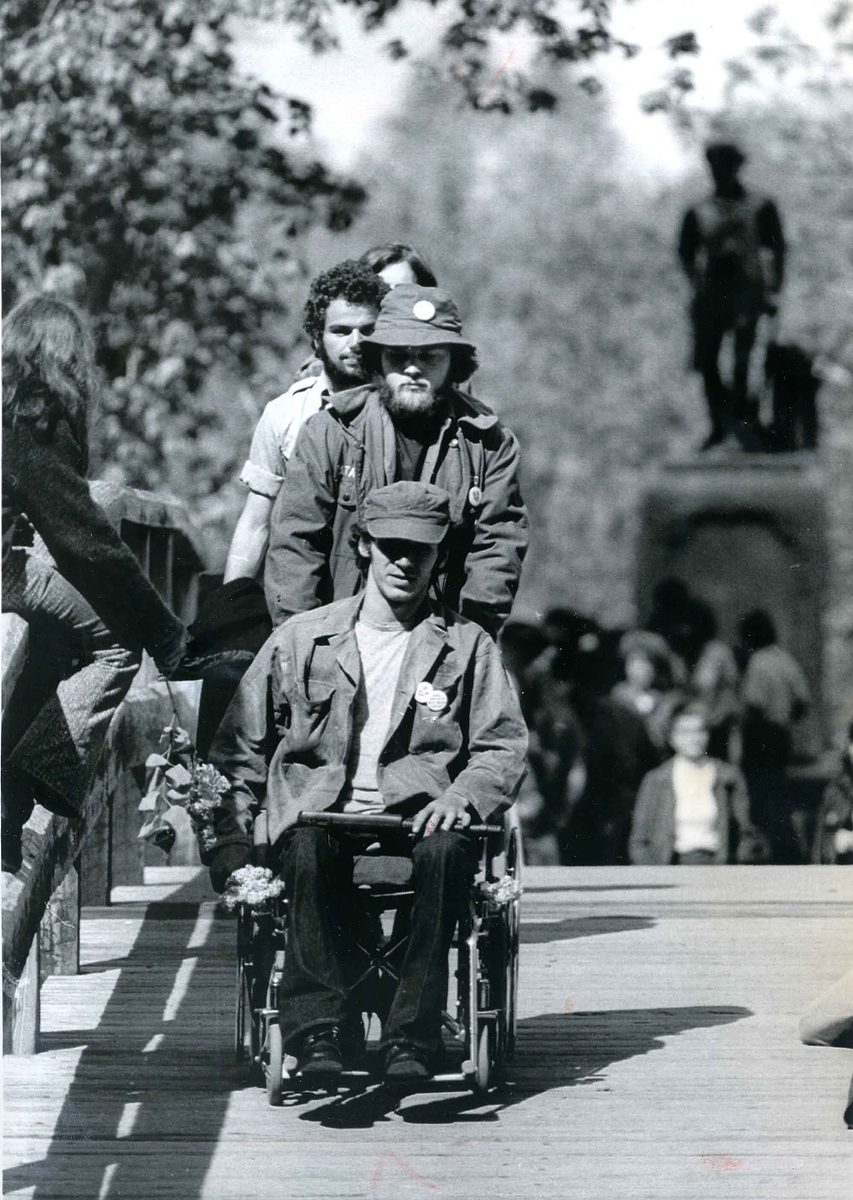Hundreds of soldiers marching from the North Bridge in Concord, through Lexington, and onto the Bunker Hill battlefield in Charlestown — this sounds like a scene from the Revolutionary War. But this event didn’t take place in 1775; this march took place in 1971, and the men were American soldiers. More specifically, they were Vietnam veterans.

Battle Green Vietnam: The 1971 March on Concord, Lexington, and Boston is the latest book by historian and writer Elise Lemire. A native of Lincoln, Massachusetts, Lemire first grabbed the attention of Thoreauvians and Concordians in 2009 with her wonderful book, Black Walden. And now, Lemire has taken a little-known piece of Concord history and turned it into a thrilling story of patriotism and dissent.
By 1971 the Vietnam War was in its seventh year, although America’s involvement in Southeast Asia went back even further. With casualty rates climbing, many Americans, especially the younger generation, were becoming disillusioned with the war, which seemed to be dragging on with no particular plan from President Nixon or the Pentagon on how to achieve victory. Many people began to see the war as unnecessary and immoral. One of the more vocal anti-war groups were Vietnam veterans. They’d seen the war firsthand, felt that the war was unwinnable, and they wanted the United States to get out of Southeast Asia.
The veterans saw their march as patriotic, and what better place to protest than where the American Revolution began? “Vietnam Veterans Against the War are planning a reverse Paul Revere March from Concord to Boston” read the press release. Much like Revere did in 1775, the veterans saw their march as a way to warn the American people that the Vietnam War was immoral and illegal.
Lemire brings the story of the march vividly to life in her new book. While it’s relatively forgotten now, the event was a big deal in 1971; it made the American public more aware that Vietnam was a needless war. And it led to the largest mass arrest in United States history.
While the book specifically tells the story of a particular event, there were bigger things at play here. The veterans felt that it was their patriotic duty to speak out against the immorality of the Vietnam War, to stand up to a government that was doing immoral things. By protesting in Concord and Lexington, the vets were demonstrating a connection to what they believed were the founding principles of the nation, in the very place where that nation began.
Battle Green Vietnam is a great book, highlighting an event that should be better known and remembered by students of history. Concord takes great pride in its history of civil disobedience, from the minutemen in 1775 to Henry Thoreau in 1846, and Lemire’s book adds another story to that proud history of dissent and resistance. And the veterans understood that history of resistance when they announced at the beginning of their protest: “Just as the Minutemen gathered freely in 1775, we gather freely in 1971.” Lemire’s book is the telling of a single event, while honoring a long history of participation in the democratic process. In a free country, dissent can be patriotic.


